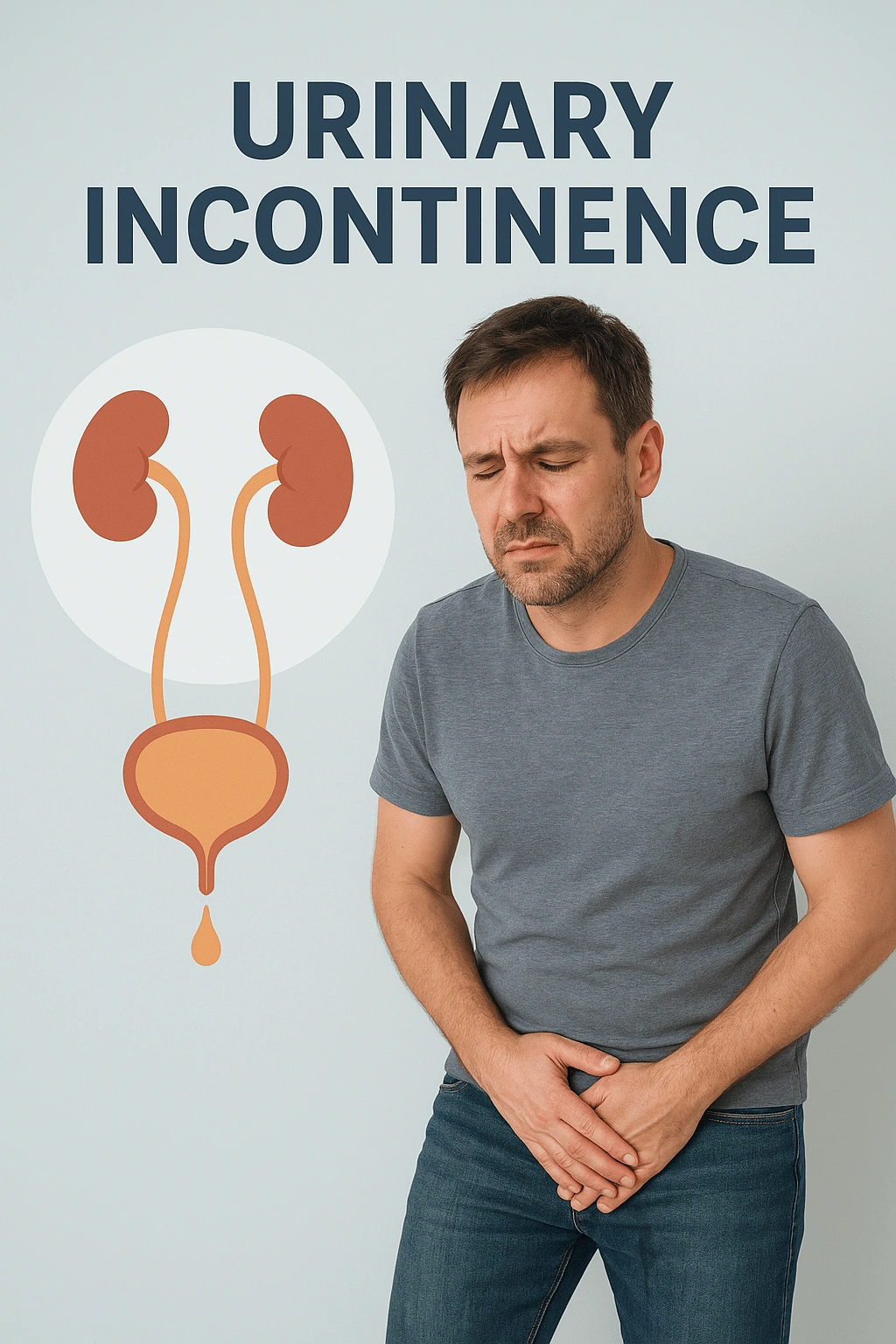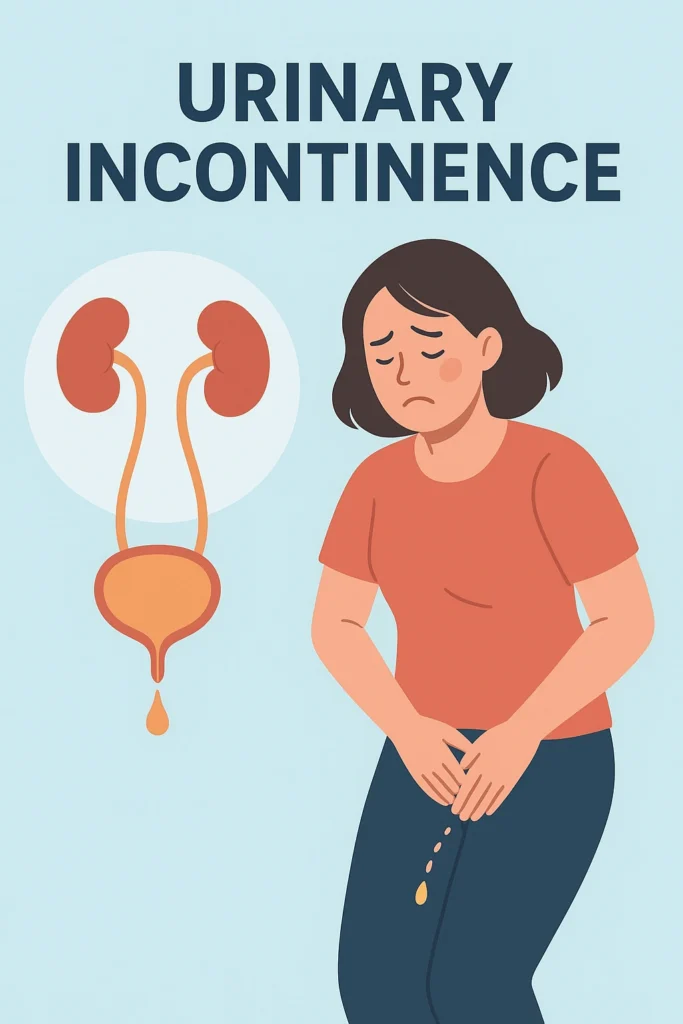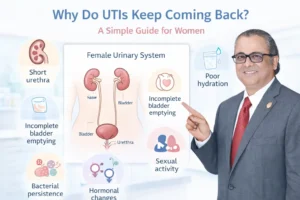
Understanding Urinary Incontinence – Causes, Types, and When to Seek Help
By Dr. Sanjay Bhat — Urologist in Dubai – topic: urinary incontinence treatment in Dubai
Have you ever been on a long trip, in a meeting, or in a public place and suddenly felt urine leak without warning? Many people feel embarrassed to talk about this condition, but it’s more common than you think. This problem is called urinary incontinence — the loss of control over your bladder. As a Malayali urologist in Dubai, I regularly meet patients who silently suffer for months or even years before seeking help. The good news is: urinary incontinence treatment in Dubai is available and can often help patients manage or completely overcome this problem if diagnosed early.
Who Gets Urinary Incontinence?
Although it is seen more often in women, men can also have urine leakage — especially as they grow older or have prostate problems. Women may face it after childbirth, during menopause, or due to weak pelvic muscles.

Men may experience it after prostate surgery, with an enlarged prostate, or if there are nerve-related problems. Conditions like diabetes, strokes, Parkinson’s disease, and chronic constipation also increase the risk.
The Different Types of Urinary Incontinence
Knowing the type of incontinence you have is important, because the treatment can be different for each one.
1. Stress Incontinence
- Happens when urine leaks due to sudden pressure on the bladder.
- Common triggers: coughing, sneezing, laughing, jumping, or exercising.
- Often due to weak pelvic floor muscles.
2. Urge Incontinence
- You feel a strong, sudden urge to pass urine — and can’t hold it until you find a toilet.
- Sometimes happens even if the bladder isn’t full.
- Can be linked to bladder infections, overactive bladder, diabetes, or nerve problems.
3. Overflow Incontinence
- The bladder doesn’t fully empty, so you have constant dribbling.
- In men, an enlarged prostate or urethral blockage is often the cause.
- In women, pelvic organ prolapse or nerve issues can contribute.
4. Functional Incontinence
- The urinary system works normally, but mobility or memory problems stop you from reaching the toilet in time.
- Seen in conditions such as arthritis, dementia, or after injuries.
5. Mixed Incontinence
- A combination of two or more types — for example, both stress and urge incontinence.
Why Does It Happen?
- Ageing – Muscles lose strength over time.
- Pregnancy & Childbirth – The pelvic floor gets stretched or weakened.
- Menopause – Lower estrogen affects bladder health in women.
- Prostate Enlargement – Common in men over 50.
- Chronic Constipation – Puts extra pressure on the bladder.
- Nerve Damage – From diabetes, spinal problems, or stroke.
What You Can Try at Home Before Seeing a Doctor
While medical help is important, these self-checks can give valuable clues:
- Drink 500 ml of water and note:
- When you first feel the urge to urinate.
- How long you can hold it without leakage.
- See if coughing, sneezing, jumping, or physical activity causes leakage.
- Keep a bladder diary — record how often you urinate, any leaks, and what triggers them.
- Observe whether you always feel your bladder is “not empty” after urination.
When Should You See a Urologist?
If urine leakage:
- Happens often and affects your confidence,
- Gives you sudden night-time urges,
- Comes with burning, pain, or blood in the urine, or
- Affects your daily life and social activities —
it’s time to see a urology doctor in UAE. Delaying only makes symptoms worse.
Treatment Options
As an Indian urologist in UAE, I focus on personalised care. Depending on the cause and type, treatment can include:
- Pelvic floor exercises (Kegels) to strengthen muscles.
- Bladder training to increase holding capacity.
- Medications to relax the bladder or shrink an enlarged prostate.
- Minimally invasive procedures for severe leakage.
- Surgery in rare, persistent cases.
The goal is always to improve your quality of life and give you better control over bladder function.
I understand that in our community, bladder issues are often seen as a “private problem” and not discussed openly. But remember — urinary incontinence is a medical condition, not a personal weakness.
You do not need to suffer in silence. Early diagnosis and the right treatment can make a big difference.
If you are looking for a trusted Malayali urologist in Dubai or an Indian urologist in UAE, choose someone who:
- Listens to you patiently,
- Speaks your language,
- Understands your cultural comfort zone, and
- Offers scientifically proven treatments





No comment yet, add your voice below!